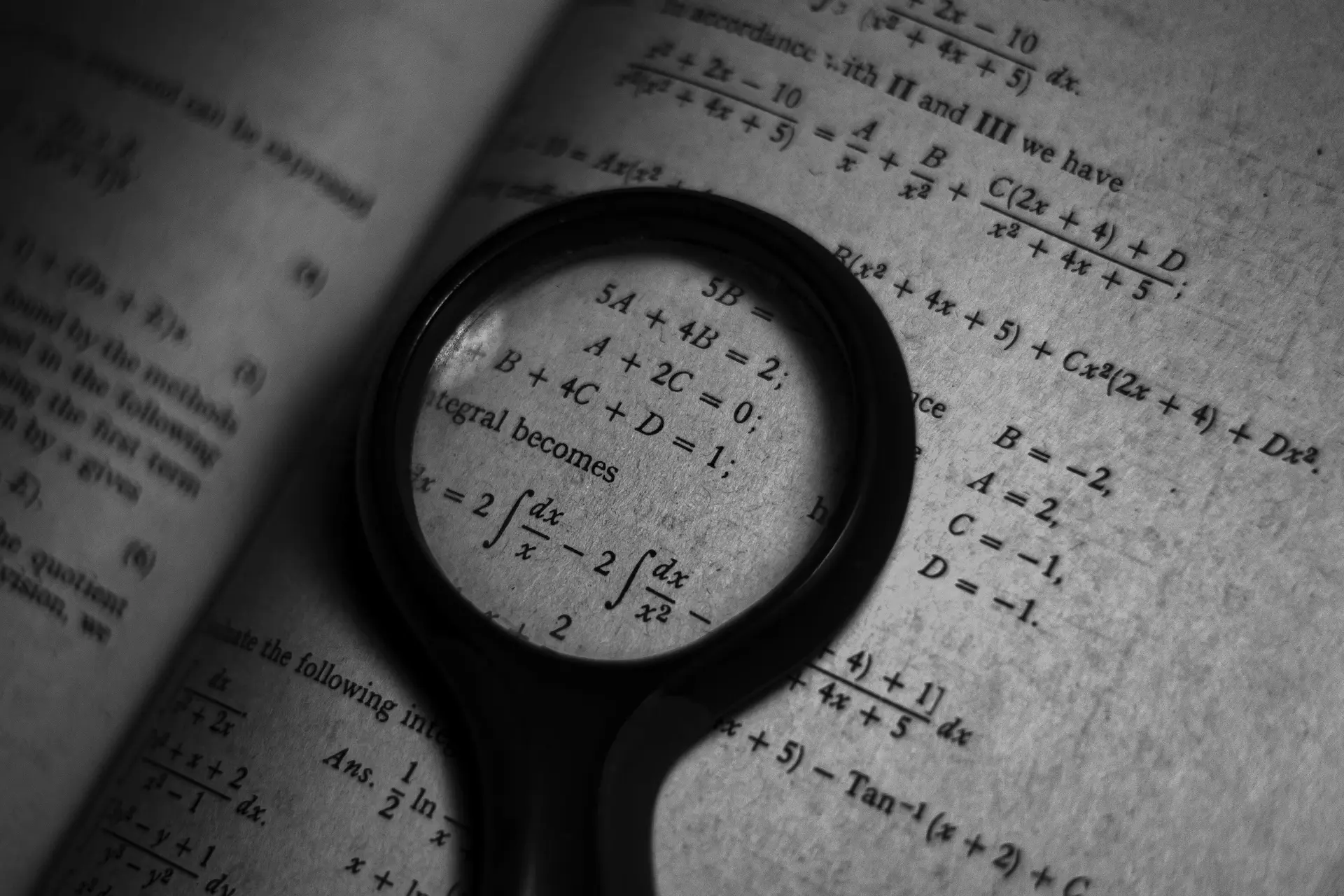Applied Math vs Data Science: What to Study in 2025?
Overview: Applied Math for Data Science Jobs
Is an applied math master’s or undergraduate degree helpful for a career in data science?
What are the benefits of studying applied math vs data science?
A lot of students have questions like these, and the short answer is that, yes, an applied math degree is a suitable area of study for becoming a data scientist. We take a closer look in this short guide.

What Is Applied Math?
Applied math is the study of real-world applications of mathematics. In particular, students focus on areas like numerical linear algebra, which is widely used in data analysis.
Plus, many learn data science programming languages, such as Python and R, and work with libraries like MATLAB and pandas.
In other words, applied math provides a data scientist with the ability to understand and communicate complex mathematical theories, as well as the ability to apply these theories to real-world problems. And that’s something applicable in all data science jobs.
Of course, there are trade-offs, the biggest being that you likely won’t get any experience working with SQL, and would have to learn SQL on your own.
But beyond the lack of SQL training, applied math is a useful major or master’s focus for data scientists. Students gain a strong foundation in numerical analysis, and in particular, are well-suited for data science work in data mining, analysis, and data modeling.
We chatted with Simon, who earned a master’s in applied mathematics with a specialization in matrix computations to help answer the question: applied math vs data science?
He shared his experiences in studying applied math and how that can prepare someone for a career in data science. Simon is currently a product operations manager at Interview Query and works in IT systems administration.
What’s the relationship between applied math and data science?
A lot of data science is discrete math because you have a large but finite amount of data. And a lot of applied math is taking those discrete structures and coming up with methods to estimate or forecast. An applied math question might be: How do you find the closest representation of a discrete dataset to a continuous curve?
Really, any subject in math that focuses on going from a discrete dataset and generating a continuous conclusion, forecast, or estimation is useful in data science. And that’s basically what you will study in applied math.
What concepts from applied math are useful for data science?
Numerical analysis is a big one. Combinatorics and graph theory are also major topics and kind of one and the same, in that graph theory is kind of like a visualization of combinatorics. Statistics is another – you can also specialize in Probability and Statistics, which is super useful.
Numerical linear algebra is very applicable as well. It’s pretty much matrix and array equations, which is more aligned with Python and pandas-type data science, you know.
In general, applied math prepares you to answer difficult data science questions. A lot of times you’re looking for correlation and causation in data science, and I have developed the ability to determine if a correlation is actually meaningful and also how to quantify the meaningfulness of correlations, which both help answer data science questions.
Skills in applied math vs data science?
In my coursework, I did a ton of Python and used MATLAB a lot for matrix functions. I also did some work in R, another statistical coding language, so I was able to really build my skills in multiple languages.
One that I didn’t work with was SQL, which is, of course, like the No. 1 skill you need if you’re studying data science specifically. Business intuition is another skill that you need to learn on your own. A bunch of people have the technical abilities, but not the business judgement aspect, so that’s a skill everyone needs to build upon.
Level up your SQL skills with Interview Query’s data science course.
Why would someone want to study applied math vs data science?
I did a lot of mathematical and technical writing and also gave presentations on technical concepts. That helps for any kind of technical job. I mean that’s a huge, huge benefit to studying applied math.
You drill down into the theory and then have to write out how to prove it. So you gain this ability to really communicate complex ideas in writing, and also the ability to present to different groups of people who have a vastly different understanding of the concept.
You know I had professors that were like teaching classes in pure theory, pie-in-the-sky subjects like complex analysis or abstract algebra, and they’d tell us, “We’re just flexing our muscles for the applied stuff. If you can write out proofs and explain these highfalutin concepts, writing out applied math algorithms is going to be a walk in the park.”
How do you transition from applied math to data science?
The base technical skill for data science is SQL, and you’re not going to study that at all when you study applied math.
On the other hand, you are going to study a lot of the theory that will help you understand data science.
So, if you do applied math and teach yourself SQL, you’re going to be in a great position because you’ll have all this writing and explanation ability – you’ve written out thousands of proofs by yourself, and have the technical skills to back it up.
Why did you pursue an applied math master’s over a PhD?
I’d always kind of wanted to do a math PhD, but I wasn’t 100% sure, and people say that doing a PhD in anything is like joining the military. It’s great if you’re 100% sure that you want to do it, and I was not 100% sure that I wanted to do a math PhD.
So I did a master’s first to see what I thought of graduate school, and I did my master’s in two years while working. I would say that, at the time, my career goals weren’t specifically to be in data science or in IT systems administration. My goal was more so to improve and discover topics that I didn’t previously know, and work on my communication skills. And I did accomplish that.
With grad school, there’s a lot more choice about what you study and how you study it. I went really hard with doing projects and presentations and writing about math, which has been an enormous advantage career-wise for me: the ability to write and talk about technical concepts with both technical and non-technical people.
Interested in starting data science salaries for PhDs? Check out our guides on economics PhD salaries, salaries for data science PhDs and our look at statistics PhDs.
Conclusion
As the role of data science grows, many applied math master’s and undergraduate programs are offering new specializations in concepts like machine learning, data mining, and analytics. This gives you the best of both worlds: a strong foundation of mathematical theory, plus intensive learning on key data science subjects.
Bottom line, there are many different paths into the field of data science, and, ultimately, the most qualified candidates aren’t those who pursued a particular major. Instead, it’s all about how candidates apply themselves, level up their skills, and prepare for specific jobs in the field.
Continue Learning
Check out these Interview Query resources. See our data science course, with modules in SQL, data modeling, and product sense. Or see our SQL Interview Questions guide.
You might also like: How much math do you need to know in data science?
Learn More About SQL
Everything you need to know about the foundation of SQL starts here:

